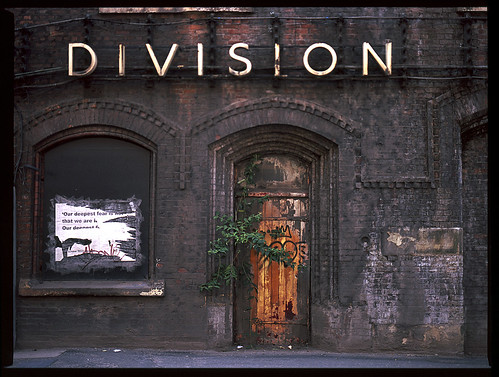There are a million and one books out there – perhaps a million and two – about how to write a book. They’re all full of advice, and some are good – most are horrid – and it seems to me that given my own situation, it’s appropriate to write about how not to finish writing a book.
It’s the death of a thousand paper cuts in a digital age.
Like all people who call themselves ‘writers’, when asked about whether I’m writing a book or not, I say, ‘yes’. Then it gets more complicated. People want to know what it’s about, people want to know what sort of writing you do, what you’ve published before, and so on and so forth.
I’ve come up with, “When you read it, you’ll understand it”, and found that depressingly untrue as I evaluate people who ask the question.
They may never understand.
Then you have all these writing contests, where people talk about how much they have written in a day, which is akin to IBM’s old and abandoned metric for computer programming – Single Lines of Code (SLOC).
What does it mean that you wrote 3,000 words today? I could write a dictionary and make that claim. Personally, I’d prefer writing a thesaurus.
On top of this, at last count there seemed to be approximately a zillion resources on publishing the book you haven’t finished, which forms it’s own distraction. Will I publish here? There?
And who is my audience? And what are critics saying about books like this? Will anyone read this? Is it worth it? Let me surf the Internet for a while.
Worse, books like ’50 Shades of Idiot’ pop up on the radar, and you realize how fickle even women are – on one side, rampaging feminists rooting out every penis they can find, on the other, books about toxic and abusive relationships for women are being bought by women. Oh, the market, so fickle, so very… human. And what if you mention BDSM relationships? Why is that poorly written series of books so popular with women? Is it because who should be the villain is rich?
Suddenly, you become acutely aware of how inconvenient potential readers can be. Again, like software engineering, life would be easier without users.
You still write, of course, but these things keep eclipsing the muse with the nagging doubts. You keep reading, of course, because reading is good for you for many reasons, not the least of which being you are digesting what you will eventually cough up over your keyboard with the juices of your life intermingled. And when that visual hits you, you sit there staring at the ceiling just long enough to really make the nagging voices their own muse.
And then you write this.
Oh, you made it this far? You poor soul.
And then I start thinking back to why I started writing, about the earliest of muses.
For me, it was hiding in a library in secondary school when the Physics class I got kicked out of was in session (I did very well in Physics because of that). Hidden within the tomes of books – so many books for a young mind – sat J.R.R. Tolkien’s “The Lord of the Rings” Trilogy.
I’d already devoured ‘The Hobbit’. My life pretty much sucked, so escapism was a plus. And I began reading the story that Tolkien had woven together – not written, woven. The world was alive in my young mind, the details sometimes as dense as Butterbur himself.
And then, there, leaned between the bookshelves of a school library, with a wary eye out for authority figures, my mind soaked itself in a new world and was so happy that it said, “I want to be able to do this!”
Then at home, mining things to read from my father’s sacred collections of books — mainly novels — I found between the engineering texts a book of engineering specifications of the U.S.S. Enterprise, 1701. Someone had written a book on how the ship worked, including ‘Desitter Space’ for Warp drives. I studied it, learning nothing of practical use, but it was a new world.
And then my mind roved back to the magic of seeing Star Wars and it’s characters, and how R2D2 captured my imagination – but my mother was in love with C3PO and thought, mistakenly, that I liked C3PO – not realizing I always laughed at C3PO and with R2D2, the clearly more intelligent robot who had communication issues that I completely understood.
Clearly I understood. My mother bought me C3PO as a gift and didn’t understand why I dismembered it. It ends up I was also prescient.
And with all of that flooding back into me, about what made me passionate about worlds that made sense as opposed to the one I was born into – there was a reason I kicked and screamed on entrance that I did not know – the world falls away to the page, the idiots capitalizing on the death of Stan Lee fade into the background, and the writing can continue.
Month: November 2018
Don’t Make It Suck More.
He sat there quietly on the steps, playing with the pocket knife he had been sharpening in whatever time he had, massaging it against an oiled whetstone when there was a break from work in the printery. There was no anger or rage, no fear or discomfort – a complete apathy had settled over him, as comfortable as a warm blanket on a cold winter’s night where he was born 15 years ago.
He’d just been kicked out of Physics class, one of the few classes he enjoyed, for highlighting a mistake made by the teacher – he was told never to return to the class.
He studied the honed blade and tested it against the young hair on his forearm, deriving no pleasure from how well he had sharpened the knife, how the knife shaved as well as a straight razor, scraping dead skin with it.
Things had not been going that well.
There was no one to talk to, really – to speak of things bothering him was a sign of weakness, and there’s little room for weakness between young men crushed together under the weight of a school where everyone in authority told him that he could do better when he didn’t meet their expectations. He had not yet learned that when he did well they did not speak, all that he heard was that he was not working hard enough.
The same happened at home. Nothing was ever good enough. There were no smiles involving him, the laughter was either directed at him or about something he wasn’t supposed to be party to. No matter what he did, it seemed, it wasn’t good enough. No matter how hard he worked in his drunk father’s business, it didn’t matter. His stepmother was a lost cause, off typing away and dragging her feet on hard wood floors, her inability to cook not open for discussion despite him having to walk home for lunch every day.
It was a control, keeping him from speaking with others at school except in class or breaks.
The printery did little more than make ends meet, with glorious plans espoused by his father that were not attainable.
“If you pulled your weight…”, “If you tried harder…”… well, that was what he was fed with every day in every aspect of his life. He did try hard. He wasn’t perfect. He responded to painful stimuli just like everyone else, to a point, to a point where he was squaring off with everyone when beaten into a corner like an animal. He started coming out of that corner swinging, and that, too, didn’t help.
He remembered a drunk uncle who had been a doctor in an emergency room complaining about how people didn’t know how to kill themselves properly – they slit their wrists the wrong way, and he had gone about explaining the right way. It’s odd the things that stick in a young mind.
He didn’t fit in at school. He was mocked for his cheap black shoes, even slapped on the back of the head by schoolmates driving by as he walked back to his prison. He seethed.
Maybe it would be easier for everyone if he just wasn’t around. The thought had no feeling to it – there was an apathetic pragmatism to someone who, already confused by puberty, the culture shock of being of another place and of a mixed ‘race’, and no way to let any of it out without more of the same burden that had been piling up for years.
He traced the knife point – he had honed that part the most, for opening boxes of paper – along the path that the drunk doctor had demonstrated, quietly. There was no thought of death. There was a thought of leaving life and escaping a world that was heavy-handedly trying to sculpt him into something he could not be.
Those he loved could not be pleased, those he liked could not be pleased, and the response that broiled in him just made things worse over and over again.
Life, to him, was pain. As he fiddled with the knife, he thought about what might be said about him should he leave, and realized it simply wouldn’t matter anymore.
A deep breath. The index finger steadied itself behind the blade of the knife, feeling the curve of it. “It might take a while”, he thought, but he had nowhere he wanted to be and nothing better to do based on the validations of others.
There was no pain when the point pricked the skin, revealing a drop of life’s juice. Another deep breath, preparation for the stroke….
“Don’t do that.”, said a familiar voice, quiet and deep, friendly. He looked up from his wrist, down the stairs and saw quiet and large Jojo, who looked up with the penetrating and humorous expression he always seemed to have . Jojo beckoned with his hand, and the moment was over.
He went and hung out with Jojo.
In that pivotal moment, the straw did not break the camel’s back, and, as it happens, it never did.
People like to talk about suicide after people have committed suicide, or when they have suicidal ideations. You’ll hear all the buzzwords – depression, ‘mental health issues’, and then you’ll hear the judgements about being selfish. You’ll hear people say that they had no idea, that they had just spoken to them not long ago, and how well they knew them.
The only suicide experts are dead. Everyone else just has theories. Everyone is different. I’ve lost friends, acquaintances and loved ones to suicide. I’ve also talked a lot of people out of it – more than I’ve lost – by not talking, instead listening. And I’ve lost a few I did listen to.
I’ve lost friends, acquaintances and loved ones to suicide. I’ve also talked a lot of people out of it – more than I’ve lost – by not talking, instead listening. And I’ve lost a few I did listen to.
Everyone who commits suicide has a reason that people who don’t commit suicide don’t understand. Few people who have stared into that particular abyss are even allowed to talk about it in society, or in a conversation with a counselor, without some judgement that somehow seems to make it all worse. I imagine that there are more people who have thought about suicide than any scientific study would reveal.
In some religions, it’s a sin – for the religious, the ultimate backstop. Another reason not to say anything about it. It’s taboo, more so than the the Internet History of many religious people’s web browsers.
It’s real.
As the above showed, it didn’t take much even in the moment to stop it, but it did not stop what lead up to it. While some- many? – people are oblivious to how difficult other people’s lives are, simply not being a jerk is enough.
Unprize.
 They told me that I had to play their game to win prizes that they placed on pedestals as bait to go down beaten paths, but their paths held no interest for me. The prizes were as distant as my concern for their paths, and so I chose the paths as prizes.
They told me that I had to play their game to win prizes that they placed on pedestals as bait to go down beaten paths, but their paths held no interest for me. The prizes were as distant as my concern for their paths, and so I chose the paths as prizes.
They measure you. Today, someone seeing me clad in a uniform that they wear, asked me what I do – a trap of evaluation, of how much respect should be given, for anyone can wear the sad uniform of slacks and dress shoes and a nice shirt. Anyone can get a suit and parade themselves as someone who has attained something, wearing the apparel as a token of achievement, while I wear it as a matter of pragmatism, uneasy in this clothing, trapped within a uniform that does not define me.
The respect for position means nothing to me. The respect for appearance means nothing to me. Having things they consider nice means nothing to me.
 To them, I am strange – a creature that they cannot define in a world that they always had defined for them, a matter of convenience, a path to follow to get prizes – and for their efforts, they get prizes. I have something that they consider a prize and they wonder the path I got there by and they have no frame of reference for a neo-generalist life.
To them, I am strange – a creature that they cannot define in a world that they always had defined for them, a matter of convenience, a path to follow to get prizes – and for their efforts, they get prizes. I have something that they consider a prize and they wonder the path I got there by and they have no frame of reference for a neo-generalist life.
To explain to them would cause them to question their own lives, and no one who has set out to win those prizes by beating those paths wishes to question their own lives.
I’m an aberration to them, the asynchronous life finally having reaped things that allow me to move forward.
I am not what I have done, I am not what I do, I am what will be done.
The stuffed animal is a landmark, not something to hit other people with.
Fragments.
“…These fragments I have shored against my ruins…”
T.S. Eliot, “The Waste Land”
There are times in life when things shift from clarity to murk, where everything shifts based on new knowledge, new experiences, and value shifts.
Things considered losses in the past can easily become successes, and vice versa – assuming, of course, that the losses gave us new insight and knowledge, fragments of a reality that we all attempt to sew together in some semblance of a reality that we can be on terms with. The path seems never-ending.
When we are younger, we have less of life to re-evaluate with these changes in how we perceive the world, and how we perceive ourselves in it.
As we grow older, it becomes more and more difficult to re-evaluate our body of Life as we move forward. Some harden themselves against change, like a developing nation hiding behind bureaucracy to isolate itself from monumental changes in the hope that it will all just go away – a collective head in the sand. It’s unlikely that the sand around us will change, but the body remains subject to a world of accelerated change.
The world does not go away. In a stream of falling stones, some of us make the effort to push upward in the hope we will find solid footing, constantly looking for a perch even as we scramble to find purchase. At times we run into Others who help or hurt us, defining how we act toward Others in the future. So many groups seek to move forward by standing on the others below them, the concept of hierarchy as old as mankind itself.
Few look to pull each other up; trust is hard to come by, a currency of value that is best not spent.
Sometimes we find a perch and look down where we once were, shouting advice downward, perhaps guiding, perhaps hindering. Rarely do those on a perch look up to find the next paths, tired, exhausted from getting to that perch, they need time to rest and find solace in trying to guide others on their own paths to a perch that may not be theirs… because in all of this, we do not see the perches to the sides of us, perhaps hidden, perhaps because who we are blinds us to them.
Perches are not permanent. Falling fragments of life are permanent in their movement alone.
We cannot build on the fragments, they are only temporary places to be.
Divali/Eid/Christmas From An Atheist Perspective
 People are wishing each other a Happy Divali today, just as others wish others a Merry Christmas or a Happy Eid on other days. There are other religions I have missed, and I apologize, but I’m no expert on any of these things..
People are wishing each other a Happy Divali today, just as others wish others a Merry Christmas or a Happy Eid on other days. There are other religions I have missed, and I apologize, but I’m no expert on any of these things..
All of these religious observations are focused on being the best self you can be. Underneath all of these religious observations are fundamentals of good triumphing over evil, and that would be pretty subjective if it weren’t how people implement them through religion.
Being nice to other people is generally a good idea – but how we’re nice to people varies. On days like this, people open their doors to friends, family and even strangers and share their food, space and even gifts. Some people use it as a time to demonstrate how successful they are, as you find in any religion, and still others try to out-devout everyone else – again, just as you find in any religion.
It’s the rare person with pure intent. It’s the rare person who is that light in the darkness, even on the most brightly lit of deepest darkness.
We are all selfish, flawed creatures – some say we’re all sinners, and though the nomenclature is different the philosophical meaning is the same. We get caught up in our lives, doing the best we can within the confines of the prisons of our lives, and even with the best of intentions we’re imperfect.
There’s a part of me that wonders why people don’t strive to be the best that they can every day, and questions the need for such religious observations. There is another part of me that understands the need to pause and have some introspection on such things, which I believe the religious observations are truly supposed to be about.
So, to those going through their introspection on your religious observation, considering how to be better versions of yourself, refilling your cup with that which you think is good – I sincerely and without reservation, wish you the best, be it Divali, be it whatever your observation is.
For the rest of you – enjoy your day off. Try not to be too loud or make too much of a mess.
Blind
 Wherever I worked, I usually tested the hierarchy’s patience with my ‘going out of scope’. It started in secondary school, actually – I remember the day – when I had gone off wandering outside of the Chemistry curriculum (but within the textbook).
Wherever I worked, I usually tested the hierarchy’s patience with my ‘going out of scope’. It started in secondary school, actually – I remember the day – when I had gone off wandering outside of the Chemistry curriculum (but within the textbook).
I’d been doing my own notes independent of the class – things that I found interesting. I didn’t understand a curriculum. I was just having fun learning, and so I had foolishly thought that my work would be appreciated when I showed my work to the teacher.
He wasn’t impressed, particularly since I wasn’t doing too well in his class. He wanted me to focus on the curriculum – but no one had given me a curriculum, they’d given me a book. He told me I would continue to get bad grades in chemistry until I focused on the curriculum.
What we both didn’t know at the time is that I didn’t care about the grade, I cared about learning stuff. This could have been a pivotal moment for me in formal education, but it wasn’t. That would come almost 2 years later when I decided I needed to pass their tests.
Similar stories followed me throughout my careers. I was never interested in what society thought I knew, I was always interested in what I could learn. At first, there was little benefit, but later on in my careers in Medicine (USN), software engineering (all over) and writing it came in very handy because I not only knew things that others didn’t, I also didn’t think like others did.
Since I wasn’t interested in their prizes, I didn’t have to play by their rules. And since I didn’t play the ratchet game of educational landmarks, I didn’t limit myself and didn’t stop studying things after I got to a certain point. So many people languish, letting the fluid education they have become concrete, set in stone.
In solving problems, this became my greatest strength – that I was immune to siloed knowledge. It drove managers and CTOs nuts at times, having a software engineer wandering around and talking to users and people who supported software, an unheard of thing in modern software development, but well within normalcy in the elder practice. Know the users, know the uses. Know how it’s used, know how it might break.
Plan for everything.
But sometimes it doesn’t work that way.
As a software engineer, I usually found myself in trouble with management because I was always doing things ‘out of scope’. I’d wander around at times, talking to people who supported or used software I was working on for a few different reasons. At one of the last companies I worked for, I was told repeatedly that upper management saw me wandering from my desk too much.
My Director at the time thought I was unfocused, and yet every project I was given was done on time despite my wanderings outside the building or over to other departments. He wasn’t wrong, he just wasn’t right, and in retrospect I think he wrote that to pacify upper management. Either way, I didn’t really care, but saying that was a great way to make sure I got a crappy raise. I ended up getting a crappy raise anyway, but in a way that was my fault for not negotiating harder.
What had happened was pretty straightforward. The company had some complex software systems, and when I started the then most senior software engineer was on his last week. I learned as much about the systems as I could over that week, trailing him, getting to understand the big picture of the spaghetti code that interns had written. The few with true specialized knowledge held onto it as their job security.
I learned a lot in that week, but not enough. Nobody who was interested in solving the problems actually knew anything, nothing was documented, and so I began writing things down as I had been taught as a young Software Engineer at Honeywell. Some of it was accused of being wrong by those whose job security was threatened, and my response was that they should fix the Wiki. They never did, of course.
Things changed within the company, part politics, partly near revolt in the Software Department (another article there!), and so structures that were once fluid became siloed. This isn’t as much of an issue as people might think if people actually document what they do appropriately, and it’s shared with the department overall – so there were problems that arose because the software complexity, and entropy, had gotten to critical mass – and problems arose that required someone to be outside of the silos.
At around that time, I was asked to a meeting about some issues and I stayed quiet the entire time. One of the company’s officers asked me to stay after the meeting, and my Director was there too. He asked me, “Why didn’t you say anything?”
So I explained to him that since everyone was off doing their own things, and that I had no insight into how things were actually changing in the software across multiple teams, I felt blinded. Where once I had a working knowledge of the systems, I no longer had it because I wasn’t able to see what was changing, and how it would affect the systems on a larger level.
There was a silence. Nothing changed. And after a few system screwups that brought the entire system down, caused by undocumented and sometimes ill advised changes in the code by people, including myself (mine were documented)… I gave up.
I knew we were working blind. However, people who had never peered behind their version of Plato’s Allegory of the Cave couldn’t see, and because they couldn’t see, they didn’t care.
Innovation vs. Specialization
 People look at things through their perception and what their experience have taught them.
People look at things through their perception and what their experience have taught them.
We live in an era of specialization, where people are expected to continuously refine their skills in a smaller and smaller area of expertise. We sacrifice width for depth, thinking that more specialized knowledge will somehow allow us to innovate ourselves out of dilemmas.
Innovation typically doesn’t come from people who specialize in only one thing. For instance, the Theory of Evolution is known to have been introduced by Charles Darwin – but very few people know that without the help of James Gould, Darwin would not have found out the 13 species of bird obtained in the Galapagos Islands were related. Gould was an expert, Darwin not so much.
Albert Einstein’s Theory of Relativity upturned physics and the world not because he had studied Physics, but because he went beyond what was taught and came up with his own theory.
When you look at any true innovation, you’ll likely find that someone with enough knowledge of different fields came up with ideas that solved problems, be they world views in science to implementations of technology.
Unfortunately, there is no direct reward for that.
Divides.
 It was the first day of the flooding in parts of Trinidad and Tobago. I had been keeping up to date on things as best I could since I no longer have the 4×4 to roll in with. It was really bad in some areas, so I went out to handle some errands close to home and get back so I wouldn’t be unnecessarily on the road.
It was the first day of the flooding in parts of Trinidad and Tobago. I had been keeping up to date on things as best I could since I no longer have the 4×4 to roll in with. It was really bad in some areas, so I went out to handle some errands close to home and get back so I wouldn’t be unnecessarily on the road.
I stopped at the local Starbucks, walking in on a scene of some children at the register looking awkward. Suddenly, a woman rushes in front of me, flustered, handing over some cash and complaining about her bank loudly. That her bank had sent out a notice earlier through social media that their network was out of service because of the flooding hadn’t made it into her busy life.
She was embarrassed and inconvenienced because her card didn’t work. She continued complaining about the bank to the point where it was interfering with me moving on with my life, so I gently made my presence known by waving my cash toward the register. She moved on with her children, awaiting their drinks.
Meanwhile, not far away, people had slept on the roofs of flooded homes. Not far away, people had lost the things that they had worked hard to get. Supplies were just beginning to get in from people not unlike her, though perhaps squawking less.
A snap judgement would have defined her as someone divorced of the reality of the flooding, but that would have dismissed the children in uniforms. I could question why schoolchildren needed Starbucks coffee, but I would be creating a prejudice from one data point – which is wrong. Maybe the woman had a hard morning. Maybe things weren’t going well, maybe the kids didn’t get breakfast. Maybe she was worried about something.
To many people there, that snap judgement would stick, perhaps unfairly, creating a division where there might not be one. Or maybe there is.
The moment sticks. We need to remember the power of moments.

